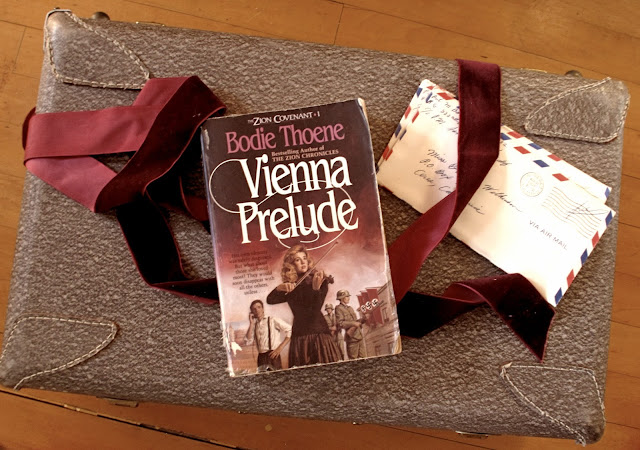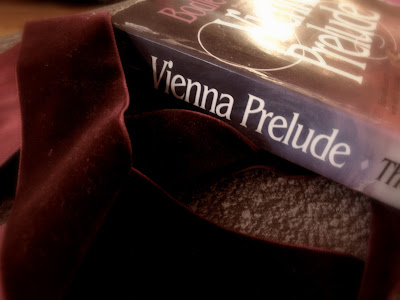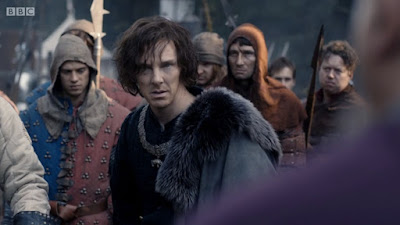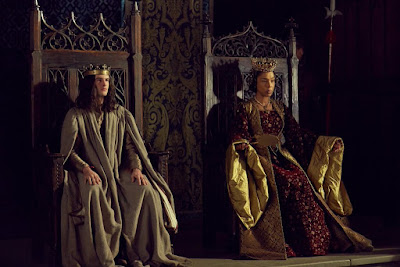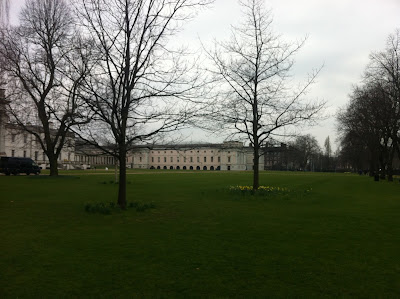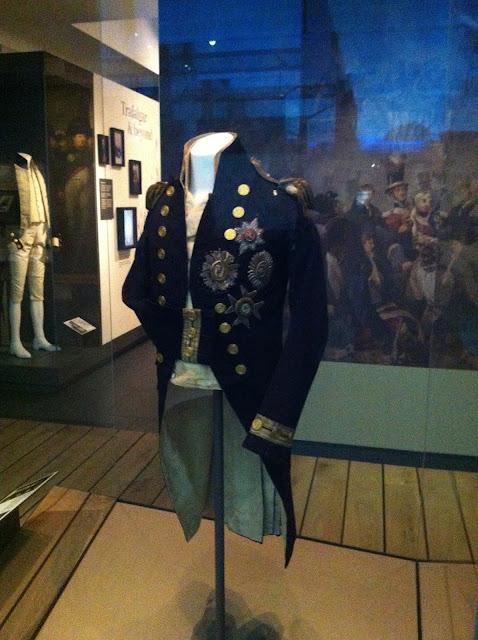In my last post about The Hollow Crown: Wars of the Roses series I focused on the first film of the trilogy Henry VI Part One to try to convince you to watch it even though it was without Mr. Cumberbatch, and I hope you have had (or will have) the pleasure of seeing it! Now I turn my attention the second film Henry VI Part Two which is a combination of Shakespeare's plays Henry VI Parts Two and Three.
You know how it feels to worry that you probably have ridiculously high expectations of something? Well, I was experiencing this in the buildup to watching Benedict Cumberbatch as the infamous Richard – I mean majorly! Just the thought of seeing these plays made me jump up and down in excitement (yes, literally).
But what you want to know is: did it live up to my expectations?
Well, I'll tell you. At the risk of raising your expectations too high, my answer is a resounding "YES!"
If you saw Benedict Cumberbatch in Hamlet then you know just how magnificent his skill with Shakespeare can be, and he is terrifyingly good as the Bard's most devious villain. (More on that below...) But he is not the only one on screen. Just as in Part One, the cast is packed with some of Britain's best, including Keeley Hawes and Andrew Scott!
The sets and costumes are once again a feast for the eye, and make a fitting visual for the magnificent words of the Bard.
 |
| (All photos are screen shots, courtesy of BBC iPlayer) |
 |
| The Duke of York faces King Henry while he claims the throne surrounded by his "mess of sons." |
 |
| The "glorious summer" court of Edward IV, when he first meets Elizabeth Woodville. |
 |
| The court of King Louis, played by Andrew Scott. |
There are a few characters that you admire or pity, such as Anton Lesser as the Duke of Exeter and Tom Sturridge as King Henry, but with every other character you just love to hate them at some point or other, as revengeful death follows revengeful death in Shakespeare's account of the bloody Wars of the Roses.
Now it is here that I must warn you that when I say bloody, I mean bloody – very literally bloody! And if someone looks like they are going to get their throat cut, THEY ARE, and we get to see it. So consider yourself warned. I've been traumatized for life, but then I do abhor gory scenes in movies and therefore avoid them, so I probably shocked me more than it would most people. But if it does bother you, I want to give you a heads up. :)
Now on to that great scene-stealer, Mr. Benedict Cumberbatch.
For so I have dubbed him after seeing this performance! I may have been more forcibly struck with his breathtaking subtlety because I have never seen an actor portray Richard Gloucester. But I cannot imagine any actor being better. Even in the brief moments that he is on screen during this film he is able to give us a rounded, believable, hateful, twistedly charismatic character. He shows how Richard could become that "proud, subtle, sly, and bloody" man from what was before an apparently sheltered, if ill-natured, boy. He made me shudder and gasp at his villainy while at the same time I had to try not to laugh at his sly looks and snarky comments.
In Richard III his mother sums up her son's life, and in this film Benedict brought that tempestuous personality to the screen with frightening accuracy
Thou cam’st on earth to make the earth my hell.
A grievous burden was thy birth to me,
Tetchy and wayward was thy infancy;
Thy school-days frightful, desp’rate, wild, and furious,
Thy prime of manhood daring, bold, and venturous;
Cecily, Duchess of York, Richard III
I've compiled some screenshots to chart his character arc, and to prove just how capable he is of stealing the show! How could Richard begin as a wide-eyed boy...
...and yet end up a man who gleefully proclaims himself "subtle, false, and treacherous" and would kill you as soon as look at you? I point you to the skill of Benedict Cumberbatch for the answer.
He makes it clear in Richard's reactions to the battles, murders and ambition which mark the plot that these are shaping his character into the man he will become. Richard has a naturally quick, cunning and daring mind and personality, as well as some bitterness at being born with his "deformity." The struggle of growing up with that has certainly also given him a determined streak. It is this combination of the inner self and the bloody time in which he lived that Benedict Cumberbatch has chosen to guide his performance and explain Richard's transformation into a villain.
Well,
I was certainly convinced. ;)
His father has fought to claim the English crown, but when he accepts the terms of King Henry to be Henry's heir, Richard appears most unsatisfied with his own father's sudden lack of ambition.
An oath is of no moment, being not took
Before a true and lawful magistrate
That hath authority over him that swears.
Henry had none, but did usurp the place;
Then, seeing 'twas he that made you to depose,
Your oath, my lord, is vain and frivolous.
Therefore, to arms...
...I cannot rest
Until the white rose that I wear be dy'd
Even in the lukewarm blood of Henry's heart!
Richard, enough; I will be King, or die.
Benedict speaks these lines of Richard's with the care and yet uncontainable fire of a man gifted with logic and charisma who is using his gifts for the first time. He conveys the uncertainty and impetuosity of a young man that has never been listened to before. But at last Richard is getting experience in manipulating the circumstances to his will, although as yet his powers are being used for his father's gain, not his own.
But his new experiences are not over yet. [SPOILERS] He is an eyewitness the the murder of his own brother, and it is clear how shocked he is.
An oath is of no moment, being not took
Before a true and lawful magistrate
That hath authority over him that swears.
Henry had none, but did usurp the place.
Then, seeing ’twas he that made you to depose,
Your oath, my lord, is vain and frivolous.
Therefore, to arms!
An oath is of no moment, being not took
Before a true and lawful magistrate
That hath authority over him that swears.
Henry had none, but did usurp the place.
Then, seeing ’twas he that made you to depose,
Your oath, my lord, is vain and frivolous.
Therefore, to arms!
An oath is of no moment, being not took
Before a true and lawful magistrate
That hath authority over him that swears.
Henry had none, but did usurp the place.
Then, seeing ’twas he that made you to depose,
Your oath, my lord, is vain and frivolous.
Therefore, to arms!
This reaction is significant to my guess as to how Benedict is portraying this character
because it tells us that Richard could feel shock at one time in his life, which leads to the conclusion that this experience must have had a profound effect on him and his next actions. It's like the first ripple in a pond. This scene is especially significant because in the play's text Richard isn't present during his brother's death (at least he isn't mentioned as being on stage at this point). But I think it was a legitimate addition in the light of giving us some of Richard's background.
Not long after this he is given the news of his father's death, and by now his shock has been channeled into a desire for vengeance. His brothers weep at the news, but Richard's quick, angry mind has already moved on to action.
I cannot weep, for all my body's moisture
Scarce serves to quench my furnace-burning heart;
Nor can my tongue unload my heart's great burden,
For self-same wind that I should speak withal
Is kindling coals that fires all my breast,
And burns me up with flames that tears would quench.
To weep is to make less the depth of grief.
Tears then for babes; blows and revenge for me!
Richard, I bear thy name; I'll venge thy death,
Or die renowned by attempting it.
And get revenge he does! He is terrifyingly controlled by it. It makes him fiercer, angrier, pitiless, and indifferent to all but what will accomplish his revenge on those who killed his brother and father. During his first battle while the man who has killed his family lays dying, crying for Richard to end his life quickly to put him out of his misery, Benedict makes me shudder. As he raises his dagger for the final blow his victim cries, "Mercy, Richard!" But instead of going in for the kill he pauses, and the wheels of his mind begin to turn.

The cries for mercy grow louder but Richard only smiles, stands up and walks away. You can just see him thinking, "Why kill him quickly when I could let him die a slow, agonizing death? Now he knows what happens when a man messes with my family." What makes it so terrifying is how calculated his malice is! It's not wild, senseless, violent hatred. He is able to think about how to inflict the greatest amount of pain, even in the heat of combat. He recognizes that war offers the ideal conditions for him to display his mental skills of cunning and quick angry action, which I think is a prominent reason why he seems drawn to take part in war and conflict.
(I just want to take a moment to point out the apparent correlation between the progress of his hair and the progress of his villainy. It seems to get messier and shorter as he gets more calculating. I'm not sure why, but it works.)
After the above battle is won Edward is crowned King, George dubbed Duke
of Clarence and Richard Duke of Goucester, and we jump ahead ten years.
Now who knows what shenanigans Richard has been up to during that
decade, but whatever they were, we can be sure that he has grown more
cunning and bitter in his violence, more dexterous in using it, and
therefore more contemptuous of everyone around him, particularly his
brothers, who have on the contrary grown more comfortable and indolent. They seem to have lost their zeal for the power and honor of the House of York, and instead bicker over Edward's choice of wife while they caper about in a game of tennis.
But Richard isn't idle. He not only sees all, but puts it together and uses it to his advantage. Instead of wasting his time with fretting over difficulties he bides his time and finds a way to amuse himself by hatching the most ambitious plan in his power: to be the king. The fact is that he's probably bored with no wars to fight or revenge to exact – he tells us as much in
Richard III – so he begins weaving a web that he will use to catch the crown.
I would be worried if he was looking at me like this...
... Or like this. His mind is definitely plotting something.
Benedict does the plotting expression so brilliantly! He's got the whole actor playing a character who's also playing a character down to a science. Richard has learned the subtle art of presenting himself as whatever part will put him in the most advantageous position, which at this point in the story is the loyal brother to the king – as opposed to their other brother who joins the Lancastrian forces out of spite for his brother not giving him the wife he wanted.
So his brother Clarence storms off while Richard pledges undying loyalty to Edward. And he lays it on thick in the lead up to the next battle, particularly when they visit Warwick in the enemy camp. Richard's personality is increasingly taking center stage and seizing control of the plot, and we are given more opportunities to watch his mind work – little smiles, looks, movements – that will reach their pinnacle in
Richard III, when his name and personality take over the entire play.
What a face! Not only is he cunning, but he has a positively impish enjoyment in manipulating everyone.
There he is exacting revenge on one of his many enemies...
He hasn't quite gotten his temper under the control of his cunning: he's about to murder someone.
Well, more than one someone. Only this time it is part of a very elaborate and long-term plan, indeed. He is now officially scheming to gain the English crown by getting rid of every other contender that stands between it and him.
Here in the last scene Richard stands in all of his glory, speaking his infamous monologues directly to the audience – which gives his recital of those crafty, angry, murderous schemes a more terrifying effect than I could ever have imagined feeling while I watched Benedict Cumberbatch!
I knew he could play a villain well, but in those moments he was the villain! A villainous villain oozing villainy. I can't say it enough. I'm still recovering from the terror.
The first part of this speech is taken from earlier in the play (Act 3, Scene 2), but I think it works here. Doing so has Richard putting his plot into action later on – although it doesn't exclude the possibility that he began the plot at that earlier time (when Edward meets Elizabeth) – which works with the momentum of the film because it has been moving Richard more and more to the center of the action, and preparing us for when he takes the leading part in Richard III.
It probably shouldn't, but this part of the movie delights me. Of course I heartily condemn Richard's ambition and cold calculation of an untold number of murders. But as a performance it is enthralling! Benedict moves from passion to resignation to glee to pain to anger to confusion to rage and everything in between in this marvelous ten minutes.
Now I'll let Shakespeare and Benedict do the rest. You've had enough of my commentary by now. ;)
Why then I do but dream on sovereignty,
Like one that stands upon a promontory
And spies a far-off shore where he would tread,
Wishing his foot were equal with his eye,
And chides the sea that sunders him from thence,
Saying, he’ll lade it dry to have his way:
So do I wish the crown, being so far off,
And so I chide the means that keeps me from it,
And so, I say, I’ll cut the causes off,
Flattering me with impossibilities.
Why, then, I do but dream on sovereignty
Like one that stands upon a promontory
And spies a far-off shore
Why, love forswore me in my mother’s womb;
And for I should not deal in her soft laws,
She did corrupt frail nature with some bribe,
To shrink mine arm up like a wither’d shrub,
To make an envious mountain on my back,
Where sits deformity to mock my body;
Then since this earth affords no joy to me
But to command, to check, to o’erbear such
As are of better person than myself,
I’ll make my heaven to dream upon the crown,
And whiles I live, t’ account this world but hell
And from that torment I will free myself,
Or hew my way out with a bloody axe.
Why, I can smile, and murder whiles I smile,
And cry “Content” to that which grieves my heart,
And wet my cheeks with artificial tears,
And frame my face to all occasions.
I’ll drown more sailors than the mermaid shall,
I’ll slay more gazers than the basilisk,
I’ll play the orator as well as Nestor,
Deceive more slily than Ulysses could,
And like a Sinon, take another Troy.
I can add colors to the chameleon,
Change shapes with Proteus for advantages,
And set the murderous Machevil to school.
Can I do this, and cannot get a crown?
Tut, were it farther off, I’ll pluck it down.
What a range of emotions! I have to say, Benedict is the perfect choice for Richard because they can both frame their faces to all occasions (although for different purposes, of course). They are both consummate actors! Perhaps Benedict inherited it from his sixteen-generations-removed third cousin (he and Richard are thus related, if you haven't heard by now).
Now we are officially at the Tower of London in the dungeon of –– I won't give it away, on the off chance that you don't know the story. :) And Richard's "bloody axe" is ready to swing. After he smiles sweetly at his victim.
But the anger is never far below the surface, and after a few jabs, it erupts...
Thy mother felt more than a mother’s pain,
And yet brought forth less than a mother’s hope,
To wit, an indigested and deformed lump,
Not like the fruit of such a goodly tree.
Teeth hadst thou in thy head when thou wast born,
To signify thou cam’st to bite the world;
In his defense, these shots would get anyone's hackles up, but, unfortunately for the speaker, Richard doesn't react like everyone else. Enter the axe.
I have no brother, I am like no brother;
And this word “love,” which greybeards call divine,
Be resident in men like one another,
And not in me: I am myself alone.
From now on it's Richard against the world! If you are heir to the crown, beware. If Richard doesn't like you, beware. He's got his axe out and it's swinging! As you can see from this face in the last shot of the film...
I'm sure Benedict Cumberbatch isn't the first actor to be absolutely brilliant as Shakespeare's ultimate villain, and he won't be the last. But if there is one thing I want this post to prove, it is that his performance deserves to be ranked with the best for it's authenticity, subtlety and sheer charisma.
Long live King Richard, England's royal king!
Next time we'll open the chocolate box that is
Richard III. 'Til then, farewell, and thanks for reading!
© 2016 Anna Morton
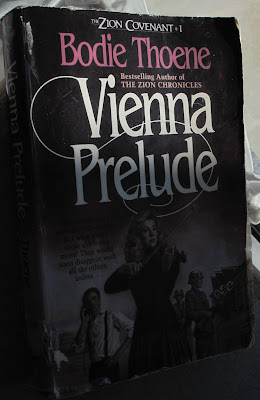 This book – so poignant, so thrilling, so though-provoking – drum roll, please – is Vienna Prelude.
This book – so poignant, so thrilling, so though-provoking – drum roll, please – is Vienna Prelude.

